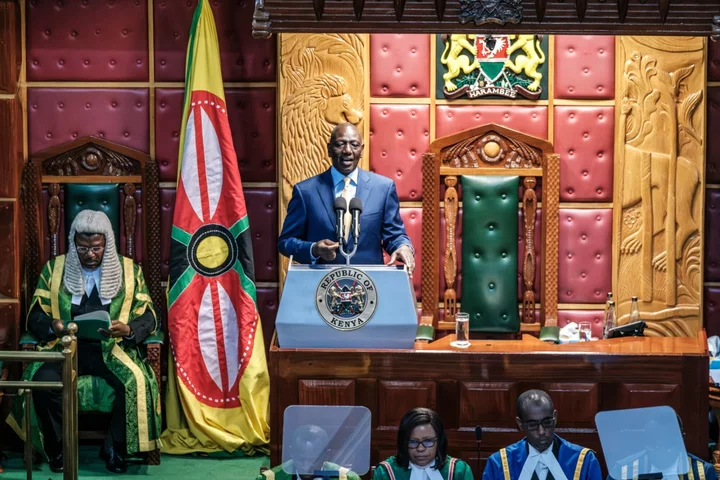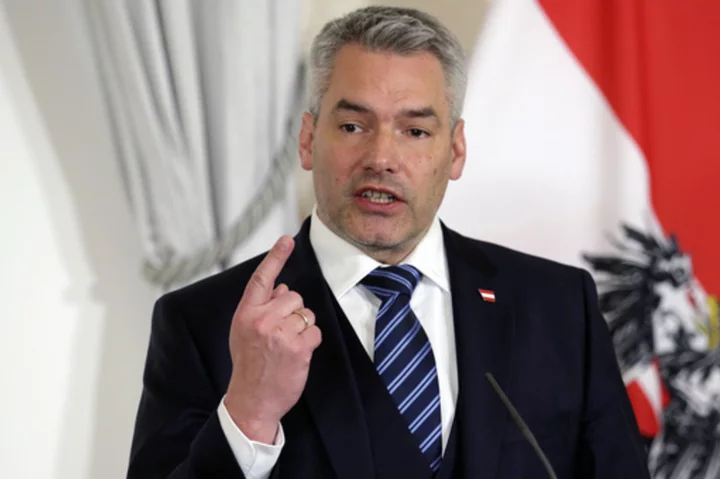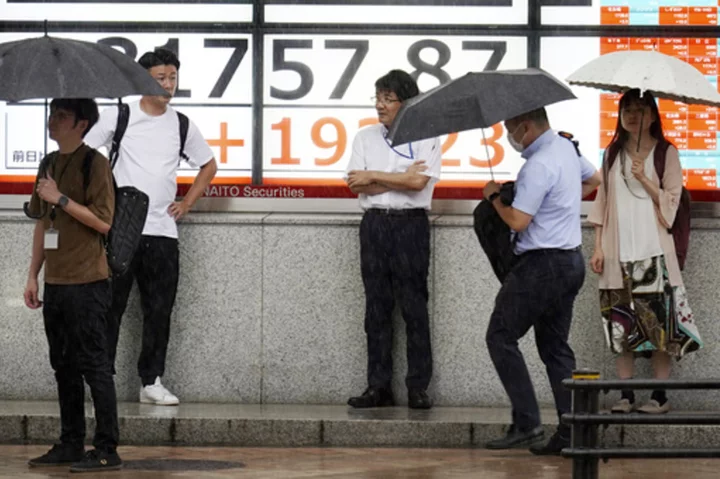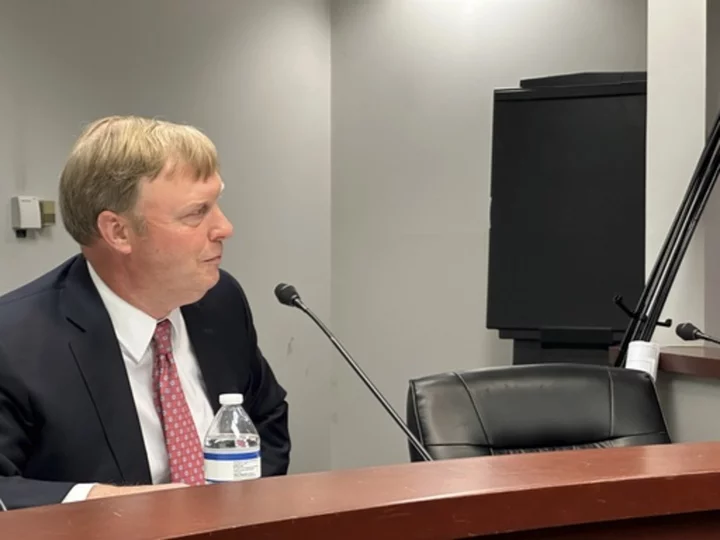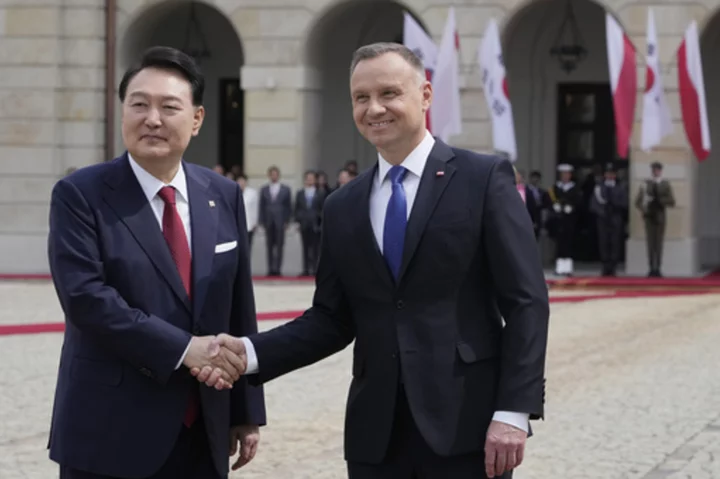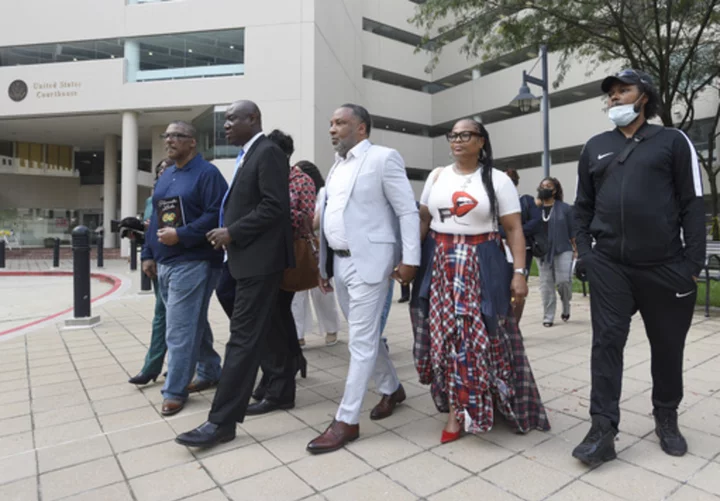As the scores of young tax agents went door-to-door in Nairobi’s Eastleigh district, shopkeepers shifted nervously.
President William Ruto’s ambitious plans to boost revenue had come to the Kenyan capital’s main shopping stretch on a late October afternoon. As the agents moved in pairs down bustling 1st Avenue, they registered dozens of shops onto the East African nation’s tax rolls — clothing stores, luggage shops, outlets selling spices and grains — after checking their books and determining average sales figures.
Hassan Abdi, a 38-year-old cloth merchant in the area, said Kenya’s tax push couldn’t have come at a worse time. “Business is tight,” he said, bemoaning an almost 20% drop in the shilling this year that’s fanning inflation and eroding consumers’ purchasing power.
Deploying 1,400 tax collectors — touted by the government as “paramilitary trained” in order to discourage resistance — is the most aggressive in a long line of controversial steps by Ruto to nearly double the government’s revenue collection to a quarter of gross domestic product by 2030. It follows a raft of new levies on carbon, cars, fuel, income and housing — and aggressive duty collection at the country’s main airport — that the new administration has unleashed as it seeks to fix an economy on the brink of debt distress.
The move comes as governments across Africa mobilize to boost tax collection amid an acute funding squeeze, with access to global capital markets constrained because of high rates — no African country has been able to issue a Eurobond since April 2022, according to the International Monetary Fund.
Soaring debt costs add to rising food inflation, wobbly local currencies, higher domestic interest rates, climate shocks and the aftermath of the Covid-19 pandemic that have spawned cost-of-living crises across the continent.
Economies including South Africa, Nigeria, Ghana, Zambia, Kenya and Ethiopia among others that recently introduced new levies or adjusted taxes higher as part of efforts to ramp up revenue collection to fund their budgets. Countries across Africa are also doing away with subsidies on energy and food.
Tax Share
Africa’s average tax-to-GDP ratio stood at 15.6% of GDP in 2021, compared with 19.8% in Asia-Pacific, 21.7% in Latin America and the Caribbean, and 34.1% in the OECD, according to OECD data. In Kenya, the rate is 14.1% as of June and is projected to rise to 15.8% by end-June 2024.
“Kenya needs to raise its revenues, reduce its budget deficit, or else it risks borrowing money to just pay the interest on its debt – just adding more debt to pay its debt,” Charlie Robertson, head of macro strategy at FIM Partners UK Ltd., said in an emailed response to queries.
African countries need to broaden their tax bases to grow revenue from informal economic activities, rather than relying on taxes on goods, which make up half of treasury earnings on the continent, according to Alexander Pick, acting head of the tax data and statistical analysis unit at the OECD Centre for Tax Policy and Administration.
Improving collection of personal income tax and social security contributions from the informal sector is a key step in enhancing revenue collection, he said by email.
Ruto’s aggressive push to grow revenue in a bid to tackle debt and narrow the nation’s fiscal deficit to the lowest in a decade has earned him a nickname: Zakayo — Swahili for the biblical chief tax-collector Zacchaeus. Just over a year into his tenure, he’s faced mass demonstrations over the rising cost of living and soaring tax bills, which he’d campaigned against.
Fiscal Consolidation
Opposition leader Raila Odinga, who’s led the protests, has demanded the government suspend the new levies. His opposition alliance is also among almost a dozen groups that have filed lawsuits seeking to annul the Ruto taxes. Kenya’s High Court is scheduled to issue its verdict on their validity on Tuesday.
The government’s aggressive tax collection comes at a time when the people have low trust in government, said Diana Gichengo, national coordinator at Nairobi-based civil society group The Institute for Social Accountability.
That’s bred hostility and is “likely to result in tax avoidance,” she said in an emailed response to queries.
While the taxes are unpopular domestically, foreign investors have applauded the move.
For the nation to unlock funding from multilateral banks and place debt on a firm downward path “it’s important that Kenya sticks to its fiscal consolidation plans,” according to Patrick Curran, a senior economist at Tellimer in London.
Kenyan revenue totaled 586.9 billion shillings in the three months through September, 11% short of target, according to data from the Kenya Revenue Authority. The country is at high risk of debt distress and in February 2021 signed a 38-month IMF program to help reduce debt vulnerability. Kenya and the IMF agreed this month to boost the package to $4.43 billion.
Public debt stood at 64.4% of GDP in present value terms in June 2023, according to the National Treasury, breaching a ceiling set at 55% of total output.
Kenya spends more than half of revenue servicing its loans, crowding out critical spending on health, education and infrastructure. The government argues it has to raise taxes in order to dig out from debt-financed public investments under previous administrations: between 2014 and 2015, Kenya borrowed $5 billion from the Export-Import Bank of China to build a new railway linking Nairobi to the port city of Mombasa.
Kenya has been “priding ourselves on massive infrastructure investments, but at no point did we ask how we’re paying,” David Ndii, chairman of the President’s Council of Economic Advisors, said at a virtual briefing on Oct. 11. “If you finance via debt, debt will become tax at some point.”
--With assistance from Jody Megson.

